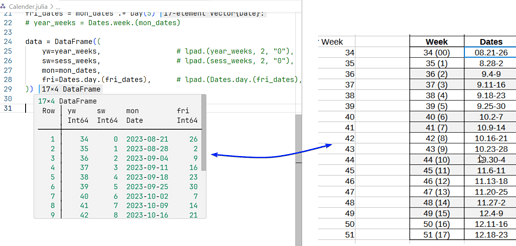- this analogy of
database : sql :: spreadsheets : ?(read: what is same to spreadsheets as sql is to database?) - … can be extrapolated to propose a new language for spreadsheets as well
- … as “spreadsheet - formula” model is a prog lang if u ask me:
SPREADSHEETS : PROGRAMMING LANGUAGE
1. functions : functions
2. formula : function call
3. data formatting : data types & output/print formatting
4. cell dependency : sequence control & declaration order
5. cell reference : scalar variable passing
6. cell range : vector/array/dataframe
7. autofill on a range : function broadcasting on vector
The “5. cell reference / variable” equivalence is also used by freecad as “identify cell by alias” ref: freecad alias
Now, this would be somewhat difficult - to integrate the language model with the spreadsheet and to keep the breaking changes as close to nil but if done, this would be phenomenal & ground breaking.
This post (shown in “Your topic is similar to…”) seems to be touch the same point (calc as server, pass data, get back the results), then shoot off to different tangent (fill up cells, use API, etc): libreoffice-calc-as-a-calculation-engine-server-or-service


